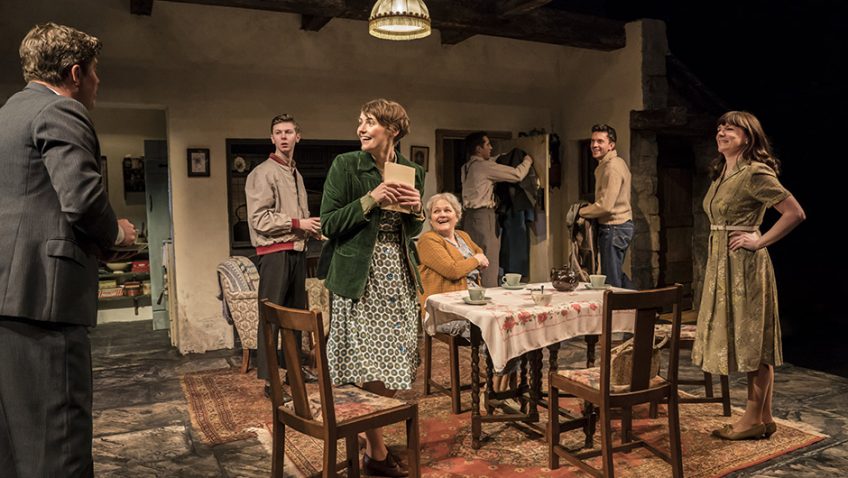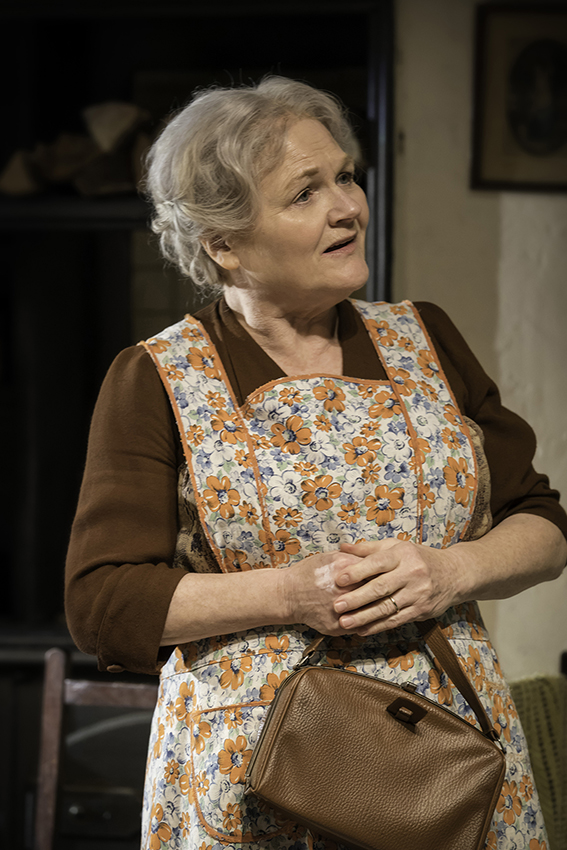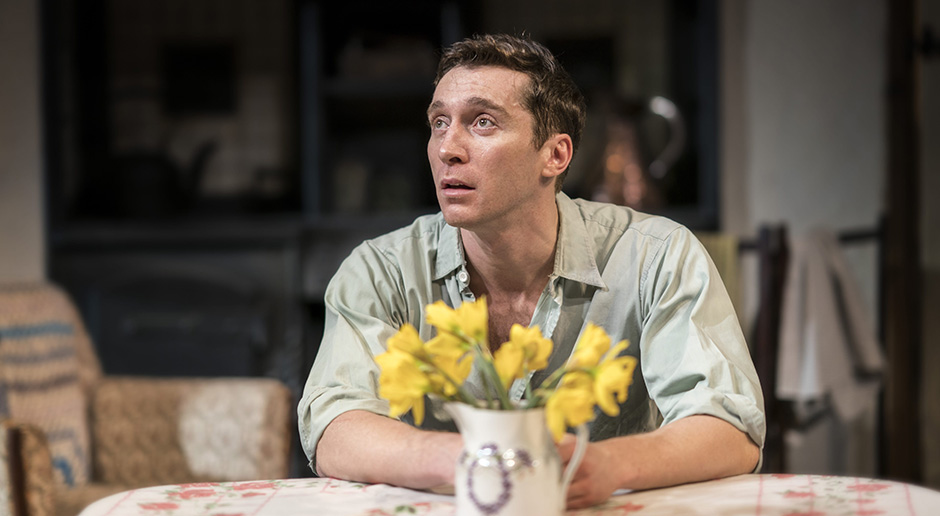Eileen Caiger Gray reviews The York Realist at the Crucible, Sheffield (March 28th 2018)
Written in 2001 by non-Yorkshireman Peter Gill, The York Realist is set in 1960’s rural Yorkshire, a gentle play about two good people, a working-class northerner and a well-spoken southerner, who fall quietly in love. Strong roots, though, even though no other obstacles exist, can dictate the entire course of a person’s life whether they like it or not.
The play’s seven characters, all kind, decent folk, are gentle yet vibrant; the humour is gentle yet still sparkles; the sparse sounds of piano, cello and birdsong are gentle, dreamy and evocative, while the projected backdrop of peaceful, verdant Yorkshire hills and changing, cloudy skies is gentle, too, and beautiful. The acting is superb.
Having travelled from London’s Donmar, Peter McKintosh’s glorious set now graces the shortened thrust stage of The Crucible, seating us downstairs in a remote Yorkshire stone farmhouse. Cosy table and chairs sit on rugs before a big black range with flickering fire, while one of the latched cottage doors leads ridiculously convincingly to an invisible upstairs and provides, too, a magical space for lit silhouettes. Though there’s no dancing in the piece, we still enjoy plenty of tap. The sound of real water spilling into the old metal kettle for frequent cups of tea, and washes at the big, white sink, lends wonderful immediacy to the action.
Soothing chit-chat about chapel, best shirts, ironing, keeping dinner warm (- nay, tea!) create a soothing, non-confrontational, non-challenging mood, dotted with a playful humour that wraps the audience in a cosy semi-smile for much of the play. But warmth and tenderness are tinged, too, with wistful poignancy. These are typical 60’s folk getting on with life, accepting what comes their way, quietly carrying on regardless, rarely, if ever, sharing or exposing their underlying thoughts and feelings. Onstage, the silences, what’s not said or mentioned, are as important as what is said, and they lend a contemplative quality to the piece as in many 60’s and 70’s dramas, that encourages us to look at what lies beneath.
Lesley Nicol’s stage presence and naturalness are a delight. As George’s loving, hard-working mum, she’s as warm and cheering as her Downton cook, Mrs Patmore, while Ben Batt brings George to life brilliantly (- as well as showing that hard work on the farm is just as effective as full gym work-outs). A man of few words, full of down-to-earth northern grit, he’s the apple of his mum’s eye. In spite of homosexuality being illegal, George is completely at ease with who he is, as are his family members. It’s never mentioned, of course, and, quite likely, it’s never even crossed his lovely mum’s mind. All ticks along nicely. Then John turns up from London to work on an am-dram Mystery Play production in York, in which George has a small role, and a tender relationship develops between the two men. Jonathan Bailey’s John, quietly posh and polite, is delightfully nervous, sensitive and delicately apologetic.
It’s not their homosexuality that’s a problem to them or to anyone else. Their eventual clash and agony stem from their irreconcilable class differences, their strong roots, the north/south divide. Regional accents were indeed much derided and frowned upon in TV, radio and acting circles for a very long time. Actors wanting to succeed were obliged to assume posh, southern tones. George could never compromise his roots: they are his identity, who he is. He knows he’d drown like a fish out of water in London society, while John, for all his romantic enthusiasm for the simple, rustic life with its black range and outdoor lav, really wouldn’t survive long Up North.
The north/south divide lives on, of course. In Sheffield they loudly applauded the lines: ‘Jesus wasn’t Yorkshire! – Yes, he was!‘ while sharing wholeheartedly in George’s sentiment: ‘London’s alright…(pause) …for a visit.’
In spite of offering little by way of storyline or crises, thanks to a strong cast, this play presents a moving, poignant slice of life. In the end, sacrificing exactly what he most wants, George’s suppressed, distressing agony finally threatens to spill out. And that says it all. That’s life.
The play runs at The Crucible until April 7th.






